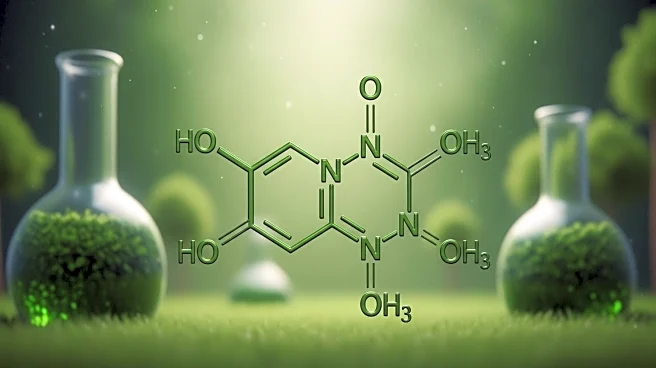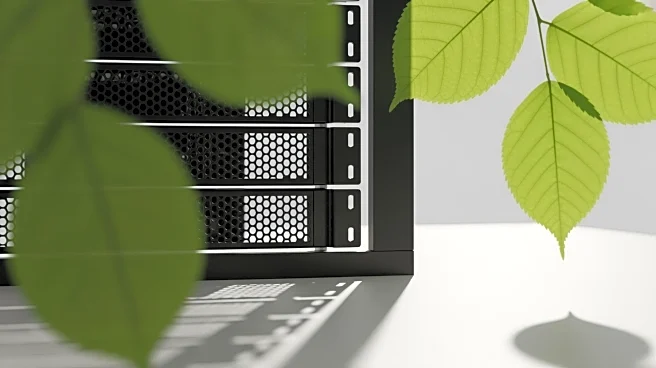What is the story about?
What's Happening?
A recent study has confirmed a long-debated theory from 1958 regarding vitamin B1, also known as thiamine, and its ability to form a carbene-like species in water. This discovery challenges the longstanding belief that carbenes, reactive carbon species, cannot exist in aqueous environments due to their rapid reactivity with water molecules. Researchers at UC Riverside, led by Professor Vincent Lavallo, have successfully observed a stable carbene in water by using protective molecular strategies. This breakthrough was achieved by surrounding the reactive carbon center with bulky groups to prevent unwanted reactions with water, allowing the carbene to persist long enough for direct observation using nuclear magnetic resonance spectroscopy and single-crystal X-ray structure analysis.
Why It's Important?
The confirmation of the vitamin B1 theory has significant implications for the field of chemistry, particularly in the pursuit of greener chemical processes. Water is an ideal solvent due to its abundance, non-toxicity, and environmental friendliness. The ability to conduct carbene chemistry in water could lead to safer and more sustainable production methods for pharmaceuticals and materials, reducing reliance on hazardous organic solvents. This advancement not only validates a historical scientific proposal but also opens new avenues for exploring other reactive intermediates that have been difficult to isolate. The study highlights the potential for innovative molecular designs to facilitate powerful reactions in safe solvents, contributing to cleaner industrial practices.
What's Next?
The research team plans to explore other reactive intermediates using similar protective strategies, potentially uncovering new insights into chemical reactions that have been challenging to study. This approach could lead to the development of more efficient catalysts and reaction pathways in aqueous environments, further advancing the field of green chemistry. As the scientific community continues to refine experimental techniques and molecular designs, the findings may influence future research on enzyme mechanisms and metabolic processes involving thiamine-dependent reactions.
Beyond the Headlines
The study underscores the importance of revisiting historical scientific theories with modern tools and methodologies. It demonstrates how advancements in technology and experimental design can transform speculative ideas into concrete evidence, reshaping scientific understanding and practice. The ability to stabilize reactive species in water not only enhances the feasibility of environmentally friendly chemistry but also challenges traditional assumptions about chemical reactivity, encouraging a reevaluation of established scientific paradigms.















